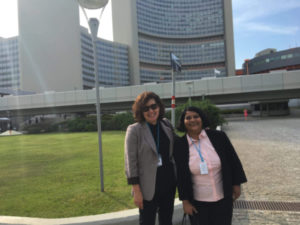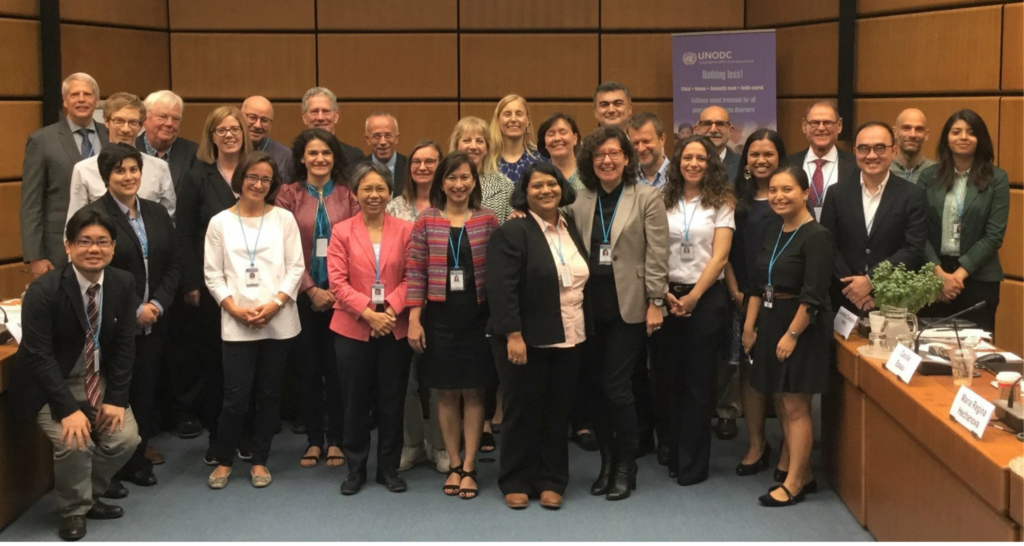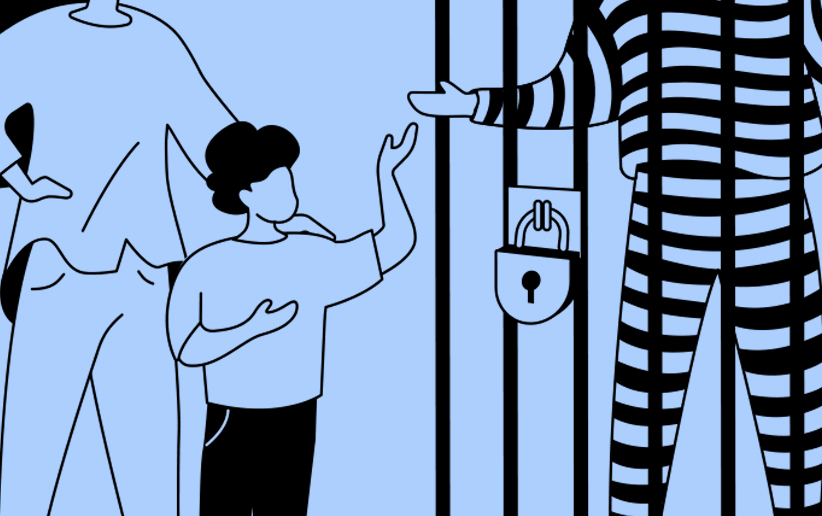Inviting Families into Systemic Therapeutic Spaces in India: Strengthening Access to Family Therapy in Low and Middle Income Countries
This article is offered free by AAMFT. If you are interested in accessing members-only content, join today!
I (MP) was born and raised in the small town of Odisha, and was first introduced to family therapy in a post graduate diploma course in Counseling Psychology in Mumbai, a metropolitan city of India. Back then, the course I took provided me with a theoretical understanding of the various family therapy models and piqued my interest to know more: A practical understanding of applying the systemic principles. Although I worked as a telecounselor with clients at risk for HIV/AIDS and sexually transmitted infections (STIs), I found myself challenged. Without the systemic training, I did not have the tools needed to work with a couple struggling with trust and relational conflicts. In India, programs of systemic training (such as postgraduate and certificate courses and workshops) are few and scope for clinical training is limited (Rastogi, Natrajan, & Thomas, 2005).
India’s mental healthcare burden is huge. Mental health needs have increased exponentially, whereas there are fewer skilled mental health practitioners to meet those needs. Increasing mental health needs and fewer trained mental health professionals, alongside the COVID-19 pandemic—a global health crisis that continues to shake the world–has had a devastating effect on the physical and mental health of the people in India. Yet, India’s story is not so different than the rest of the world, especially low and middle income countries (LMICs). In India, the rate of total mental health workers per 100,000 population is 1.93. Psychologists and other paid mental health workers are 0.07 and 0.036 per 100,000 population (World Health Organization, 2017). The deplorable state of qualified mental health practitioners is a growing concern.
Globally, annual spending on mental health is less than US$2 per person and less than US$0.25 per person in low‐income countries (LICs), with 67% of these financial resources allocated to stand‐alone mental hospitals, despite their association with poor health outcomes and human rights violations (WHO, 2013, as cited in Charlés & Bava, 2020). Between 76% and 85% of people with a severe mental health disorder receive no treatment for their disorder in LMIC. The corresponding number in high-income countries, such as the U.S., is 35-50% (WHO, 2011). According to Vikram Patel (2012), the treatment gap is over 50% in all countries.
India’s economy is classified (for FY 2023) as a lower-middle income economy. Lower middle-income economies are those with a gross national income (GNI) per capita between $1,086 and $4,255 (World Bank, 2022).[1] Low and middle-income countries, even those with economic engines as large as India’s, face unique economic pressures that challenge their resilience to external shocks. The challenges to families quickly follow suit. The COVID-19 pandemic and the war in Ukraine have had ripple effects across the entire global landscape; in low-resourced settings, such as LMICs, or fragile, conflict-affected states, their effects can be catastrophic. LMICs tend to have fragile health infrastructures and institutions (Charlés, 2021), inadequate funding for mental health, and “far fewer mental health workers to deliver a core set of mental health interventions needed” (Kakuma et al., 2011, p. 2).
In the global mental health portfolio, “task shifting” is a recommended best practice in low and middle income countries. Task shifting, also called task sharing, is formally defined as “delegating tasks to existing or new cadres with either less training or narrowly tailored training” (Kakuma et. al, 2011, p. 16). Essentially, it is a way to increase the range of health services offered in a low-resourced setting, by focusing on training and supervision support of the human resources (in other words, people) available. Task sharing is a way to “scale up” the delivery of a service (such as family therapy interventions) or increase coverage of that service (such as providing it to a population that otherwise wouldn’t have it) (Charlés, 2015). Projects and initiatives that address task shifting and task sharing to scale occur bilaterally or multilaterally, and work toward sustainability via long-term collaboration and multiple state (country) partnerships. Sustainable practice informs all global mental health work. Sustainability is a concept by which we think many systemic family therapists aspire to practice.
At an environmental development meeting in 1987, the United Nations Brundtland Commission defined sustainability as “meeting the needs of the present without compromising the ability of future generations to meet their own needs” (Brundtland, 1987).
Global mental health is the study, research, and practice of the application of principles that place a priority on improving health and achieving equity in health for all people worldwide” (Patel & Prince, 2010). GMH, as a movement and contemporary practice, is particularly focused on bridging gaps in the field of mental health. Its emphasis is often strongest in LMICs, “which are home to over 80% of the global population, but command less than 20% of the share of the mental health resources” (Patel & Prince, 2010, p. 1976, as cited in Charlés & Bava, 2020).
Like many others before me (MP), exasperated by the limited scope of formal family therapy training in India (Rastogi et al., 2005), I, too, looked to the West. I earned my doctorate in Family Therapy from the COAMFTE program at Virginia Tech in 2013. A doctoral internship at the Houston Galveston Institute shaped my understanding of Collaborative Family Therapy, and influenced my systemic practice. In my training, I had formal and structured supervised clinical training and practiced in schools, community health centers, and university settings, with quite diverse populations. My training empowered me to apply a systemic framework with a group of refugee women from Central Africa with traumatic experiences in a group setting in Houston, one of the most diverse cities in the United States (Palit & Levin, 2016). In contrast, in India, there exists a limited scope of supervision and formal training in counseling and family therapy (Bedi, Pradhan, Kroc, & Bhatara, 2021; Rastogi et al., 2005). It is worth noting that supervision support is another pillar of global mental health, and is seen as the one of the most effective ways that technical experts can be involved (van Ommeren & Malik, 2018).
Family therapy ideas were introduced in India in the 1950s by Dr. Vidyasagar, a psychiatrist, who is revered as the father of family therapy in India (Bhatti, Janakiramaiah, & Channabasavanna, 1980). He initiated the first systemic work with families at the Amritsar Medical Center. A similar systemic treatment modality was replicated in the National Institute of Mental Health and Neuro Sciences (NIMHANS) in the late 1960s. Since then, The Family Psychiatry Center at NIMHANS has been the pioneer of family therapy in psychiatric settings (Bhatti et al., 1980) and continues to be the only center in India offering formal training in family therapy (Varghese, Kirpekar, & Loganathan, 2020), seven decades since the inception of family therapy in India. India does not have master’s or doctoral programs in family therapy (Rastogi et al., 2005). Further, stigma, misperceptions, and lack of awareness have delayed the acceptance of counseling in Indian society (Pereira & Rekha, 2017). In fact, this is a common concern across the globe; addressing the stigma of mental “ill-health” and the importance of addressing well-being across the lifespan named in the UN Sustainable Development Goals (SDG #3). In India, while counseling is a developing field (Bedi et al., 2021), family therapy is not. Or not at least not yet; not in the way we have seen it happen in high income countries such as the United States, where both of us (MP & LLC) were educated as family therapists.
Family therapy practices in India today: In the midst of a systemic evolution
There is a stark disparity in how family therapy practice manifests in India. For example, in the South, NIMHANS’s family psychiatry ward offers between two to six sessions of brief family therapy, including counseling, coping, and psychoeducation on psychiatric disorders to the family and similar variations are provided for different psychiatric disorders (Varghese et al., 2020). In contrast, a tertiary mental hospital in northern India provided a ‘brief family psychoeducation intervention module’ by a psychiatric social worker in 6 sessions, two per week, to the schizophrenic patient and the caregivers (Singh, 2021). The former includes counseling and psychoeducation, while the latter focuses only on psychoeducation to reduce the disease burden. In the past, individual mental health professionals and family therapy enthusiasts formed the Indian Association of Family Therapy (IAFT) in 1991 based in Delhi to cultivate and promote family therapy education and training (Rastogi et al., 2005).
Case Vignette[2]– A Father Worried about his Son. Back in India, I (MP) was working with a family in therapy. The father was worried about his son spending a lot of time playing games on the computer. His son’s performance at school had deteriorated, and he lacked the motivation to prepare for his upcoming exams. As a practicing systemic therapist, I was mindful of joining in with each family member, the father, mother, and son. However, during the sessions, the father dominated the conversation more, and the more he did, the son disengaged. The mother spoke whenever her perspective was asked or needed. The father was the head of the family, the decision maker, and the prominent voice in the Indian household. I was sensitive to the situated cultural, gendered, and family dynamics of this Indian family. However, I tailored the joining in and created a dialogical space for all the family members, together and individually. Families have a culture of their own and when working with families in the Indian cultural context, I am mindful that families are a crucial social system that play a critical role in the client’s well-being. Therefore, it was essential to address the disengagement of the son in the presence of the father. As a systemic therapist, the family was the client, not the son, who was presented as the identified client.
We (the therapist and clients) collaboratively uncovered the underlying relational patterns: closeness between the father and older daughter (who excelled in studies and was at a residential university), mother and son dyad, and the distance in the marital subsystem between the parents. The therapist’s collaborative stance addresses power and gendered differences in relationships (Keeling, Butler, Green, Kraus, & Palit, 2010). Also, families exist in the larger social and cultural systems that influence relational patterns. Situational context too influences interconnections between members. For example, the father’s decision to move to a new apartment complex influenced the son, as he lost his friends from the old neighborhood and stayed connected with them through online games and phone calls. Systemic work encourages therapists to examine families’ multiple contexts and complex transitions (Mittal & Hardy, 2005). Awareness of this interconnectedness of people’s experiences, the family’s changing dynamics with time, and the multiple systems aided my understanding of the family. And as therapy progressed, there were positive changes in the father-son dyad and the couple’s marital relationship. The problems of the identified client, the son, improved with the above changes.

The authors outside the United Nations Office in Vienna, June 2018. Picture courtesy Manjushree Palit.
Many evidence-based community programs are based on systemic thinking, such as Dil-Mil (“two hearts together”), a Bengaluru-based low income group community intervention delivered by lay family educators to daughter-in-law and mother-in-law dyads. The family psychoeducation intervention focused on fostering healthy intergenerational family relationships, communication, health promotion, quality care and prevention of violence. The WHO’s multisystemic ecological framework—individual, relationship, community, and social (Dahlberg & Krug, 2002)—has become the foundation of new community intervention in India. Others, such as counseling psychologists, who are trained in other treatment modalities, rely on family therapy psychoeducation. For instance, a therapist at a substance abuse deaddiction center residential facility, where I volunteered for a short period, used the CBT model with juveniles in conflict with the law in individual sessions and engaged in family therapy with the families on weekends.
TREATNET Family and the United Nations: Family Therapy with Adolescents at Risk of Substance Abuse and Contact with the Criminal Justice System
In 2018, we (LLC and MP) met in person for the first time in the lobby outside a large conference room at the United Nations Office in Vienna. Although we had collaborated previously (Palit & Levin, 2016; Charlés & Samarasinghe, 2016), we had never met face-to-face. In Vienna, we were invited participants in a United Nations Office on Drugs and Crime (UNODC) technical consultation: “Elements of Family-based Treatments for Adolescents with Drug Use Disorders: Creating Societies Resilient to Drugs and Crime.” This consultation meeting included 25 experts across the fields of family therapy, staff from the UNODC PTRS unit, and the World Health Organization, and subject matter experts in substance use disorders and countering violent extremism. The meeting was convened for a memorable week in Vienna, with participants from over 13 countries. The goal of the meeting was “to identify key elements of effective approaches to the treatment of adolescents with drug use disorders and to provide guidance for the development of a UN training package on family therapy” (UNODC, 2018, para. 4). A key aspect of the “effective approaches” and “guidance” asked of us as a group of technical experts was that we had to consider FT adaptation and implementation in low and middle income countries. The challenge is clear; while research studies in many contexts illustrate how systemic family therapy practices are part of the evidence base, Busse et al. (2021) noted that:
…almost all these studies were conducted in high-income countries and almost all of them were conducted within a research context in university setting. As such, the findings might not be generalisable to studies conducted in LMICs …. Furthermore, adolescents with SUDs and their families in LMICs do not have or very little access to effective treatment such as family-based therapy. To address this accessibility gap as well as to increase quality and diversity of treatment options for adolescents with drug and other SUDs, the Treatnet Family (TF) was developed by the United Nations Office on Drugs and Crime (UNODC; 2020). (p. 2)
That package that was begun in 2018 in Vienna is now called Treatnet Family (see below for an example of some of the concepts addressed in the package). Treatnet Family has been a part of feasibility studies, has been implemented in many countries and regions, and involved hundreds of practitioners across the globe. The package is openly accessible at no cost, and as of this writing, has been translated into four languages, with more on the way. We need more multilateral efforts and collaborations like this one, and family therapy as an established field needs to hear much more and much more often about the ways practice must be adapted to meet country contexts across the globe.
A recent publication by Busse et al. (2021) described Treatnet Family (TF) as:
… containing elements of evidence-based family therapy which has been developed specifically for adolescents with SUDs and their families in low resource settings. TF focuses on family interactions and uses elements of family therapy to interrupt ineffective communication within the family. It contains the key components of family therapy, such as:
- positive reframing (i.e., positive labeling of a negative behavior without necessarily accepting it as fine. It involves emphasizing the possible positive intent behind a seemingly negative behavior),
- positive relational reframing (i.e., positive labeling of a negative behavior in relationship to the family without necessarily accepting it as okay. Even when the behavior is self-destructive, the intent behind it can be understood and appreciated, yet not necessarily condoned).
- perspective taking (i.e., developing empathy and the ability to take another person’s viewpoint into account).
- relational questions (i.e., to support perspective taking, relational questions are asked [e.g., “When Narendra gets into trouble, who feels most sorry for him?”] in order to encourage perspective taking and relational thinking).
- going with resistance (i.e., helping family members feel heard and understood, which reduces defensiveness and makes more productive conversations possible).
TF has six sessions, with each session lasting between 90 and 120 minutes. Each session is to be attended by the adolescent with SUDs and his/her family members because the primary focus of the sessions is on the relationships among family members. The practitioner’s role is to interrupt problematic cycles, ineffective communication, and harmful behaviors family members currently use to meet their emotional and interpersonal needs. As change in family interaction can influence each family member’s behavior, family members are encouraged to be part of the solution.” (p. 2)

Participants at the UNODC Technical Meeting “Elements of Family-based Treatments for Adolescents with Drug Use Disorders: Creating Societies Resilient to Drugs and Crime,” in early June 2018, at the United Nations Office in Vienna. Picture courtesy UNODC-PTRS.
Looking to the future: The India Mental Health Care Act and bringing a global systemic journey full circle
The 2017 India Mental Health Care Act promises to bring about a significant change in the mental health scenario. Further, the recent 2020 National Commission for Allied and Healthcare Professions Act has recognized the importance of Behavioral Health Sciences professionals (counselors, therapists, analysts, educators, and social workers) and their training needs (Singh, 2021). Similarly, the 2017 India Mental Health Care Act acknowledges licensing and accreditation of mental health professionals. Although the Rehabilitation Council of India exists and is an accrediting and licensing body for rehabilitation counselors and clinical psychologists, counselors and family therapists are not included. The 2020 National Commission for Allied and Healthcare Professions Act states the necessity of training for counselors and therapists working with individuals, families, groups, and communities to address their social and personal difficulties and common mental disorders (Singh, 2021). There is recognition of teletherapy and online therapy, as well. Thus, we remain hopeful of strengthened awareness, improvement, and care in the counseling and family therapy profession through systematic changes and institutional support as outlined by these statutes.
Strengthening access to family systems ideas is an evolutionary process for individuals, as well as countries; progress can be gradual, much like the pace of the tortoise, from the hare and the tortoise fable. For example, in India, I (MP) continue to teach an undergraduate counseling psychology curriculum. In 2022, family therapy is merely one chapter in a course I teach. Not unlike I did many years ago, students I have taught have gone abroad for training in counseling psychology, mental health and/or family therapy. They continue to aspire to do this. For family therapy to reach its zenith inside of India, a systemic second-order change is needed. International partnerships, whether through meaningful affiliations, exchanges and training programs, if made accessible to Indian professionals at a subsidized cost, would go a long way towards helping the field of family systems work grow in India. Of course, continued governmental and institutional support is needed for establishing professional licensing and accreditation bodies in India, just as in any other country.
As trainers, researchers, and practitioners, the field of family therapy must find ways to complement these governance initiatives, and needs to continue to encourage, implement and disseminate evidence-based practices, adapted to low and middle income countries and fragile, conflict-affected states (Charlés, 2021). Multilateral, deeper and sustained collaborations are needed to bring family systems scientist-practitioner based curricula to the table in India, and in all low- and middle-income countries.
According to the recently published “World Mental Health Report: Transforming Mental Health for All” (WHO, 2022): “There is a close relationship between demand and supply of mental healthcare. Each of the gaps described previously (gaps in information, governance, resources and services) compromise the supply of appropriate, good quality mental healthcare. Yet, the lack of quality mental health services available, especially at the primary and secondary levels of care, in turn suppresses demand. In many places, formal mental health services simply do not exist. Even when they are available, they are often inaccessible. Concerns about location, cost, treatment and confidentiality can all drive up reluctance to seek help. Locating services appropriately is key. In LMICs, many mental health services are disproportionately concentrated in psychiatric hospitals in or near major cities. This means that rural populations often cannot or choose not to use them: the journey may be too expensive; the transportation systems may be too unreliable; and the time required may be too much. Even for those living near mental health services, the cost of treatment can prove a major barrier to demand for mental healthcare. . . . Weak or low-quality care systems pose another barrier to demand. Negative past experiences with mental health services, distrust of health professionals and treatment and unwillingness to disclose mental health problems can all play a big part in preventing help-seeking. Many people, faced with the option of no care versus contacting services that may offer little help, may not be confidential, or may stigmatize or even mistreat them, choose to go untreated” (p. 65).
[1] In contrast, in high-income countries such as the U.S., the GNI per capita for FY 2023 is equal to or more than $13, 205.
[2] Case details modified by MP to protect client confidentiality.
 Manjushree Palit, PhD, is professor and associate dean of the Jindal School of Psychology and Counselling at OP Jindal Global University. She has a PhD in Human Development with a concentration in Marriage and Family Therapy at Virginia Tech. Trained in Family Therapy at Virginia Tech and the Houston Galveston Institute (HGI), she has worked in mental health in diverse settings such as nonprofit organizations, community health centers, schools, and university settings. She has substantive experience conducting training in India, Nepal, and the Middle East. She was invited to the family therapy expert panel meeting organized by The Drug Prevention and Health Branch of the United Nations Office on Drugs and Crime (UNODC) to develop a family therapy treatment training module for Juveniles with Drug Use Disorders and in Contact with the Criminal Justice System. She has authored many peer-reviewed journal publications and is a Board Member of the International Association of Young Psychologists (IAYP), established in 2019 in India.
Manjushree Palit, PhD, is professor and associate dean of the Jindal School of Psychology and Counselling at OP Jindal Global University. She has a PhD in Human Development with a concentration in Marriage and Family Therapy at Virginia Tech. Trained in Family Therapy at Virginia Tech and the Houston Galveston Institute (HGI), she has worked in mental health in diverse settings such as nonprofit organizations, community health centers, schools, and university settings. She has substantive experience conducting training in India, Nepal, and the Middle East. She was invited to the family therapy expert panel meeting organized by The Drug Prevention and Health Branch of the United Nations Office on Drugs and Crime (UNODC) to develop a family therapy treatment training module for Juveniles with Drug Use Disorders and in Contact with the Criminal Justice System. She has authored many peer-reviewed journal publications and is a Board Member of the International Association of Young Psychologists (IAYP), established in 2019 in India.
 Laurie L. Charlés, PhD, LMFT, is a licensed marriage and family therapist and an AAMFT Professional member holding the Clinical Fellow and Approved Supervisor designations. Over the past dozen years, she has delivered family systems training and supervision support in humanitarian contexts in multiple countries, including in Syria, Libya, and Lebanon; in the Central African Republic, DRC, Burundi and Cameroun, and in Guinea, West Africa during the EVD2014 outbreak response. Her most recent consultations have been as an international trainer for the United Nations Office in Vienna, working to deliver the UNODC Treatnet Family package to practitioners in Central, South, and Southeast Asia, and as a consultant to create a grassroots toolkit for practitioners engaged in Transitional Justice and Reconciliation Initiatives in Sri Lanka. She has twice been a Fulbright scholar: in 2017-2018 as a Fulbright Global Scholar Program Fellow in Kosovo and Sri Lanka, and in 2010 as a U.S. Fulbright Scholar in Sri Lanka. She holds a PhD in Family Therapy from Nova Southeastern University and an MA in International Relations from the Fletcher School of Law and Diplomacy. She is author/editor of seven books, most recently International Family Therapy: A Guide for Multilateral Systemic Practice in Mental Health and Psychosocial Support (2021, Routledge).
Laurie L. Charlés, PhD, LMFT, is a licensed marriage and family therapist and an AAMFT Professional member holding the Clinical Fellow and Approved Supervisor designations. Over the past dozen years, she has delivered family systems training and supervision support in humanitarian contexts in multiple countries, including in Syria, Libya, and Lebanon; in the Central African Republic, DRC, Burundi and Cameroun, and in Guinea, West Africa during the EVD2014 outbreak response. Her most recent consultations have been as an international trainer for the United Nations Office in Vienna, working to deliver the UNODC Treatnet Family package to practitioners in Central, South, and Southeast Asia, and as a consultant to create a grassroots toolkit for practitioners engaged in Transitional Justice and Reconciliation Initiatives in Sri Lanka. She has twice been a Fulbright scholar: in 2017-2018 as a Fulbright Global Scholar Program Fellow in Kosovo and Sri Lanka, and in 2010 as a U.S. Fulbright Scholar in Sri Lanka. She holds a PhD in Family Therapy from Nova Southeastern University and an MA in International Relations from the Fletcher School of Law and Diplomacy. She is author/editor of seven books, most recently International Family Therapy: A Guide for Multilateral Systemic Practice in Mental Health and Psychosocial Support (2021, Routledge).
REFERENCES
Bedi, R. P., Pradhan, K., Kroc, E., & Bhatara, M. (2021). Characteristics of counselling psychology and Counselling psychologists in India: A larger scale replication of a nationwide survey. Psychol Stud 66, 1-13. https://doi.org/10.1007/s12646-021-00595-x
Bhatti, R. S., Janakiramaiah, N., & Channabasavanna, S. M. (1980). Family psychiatric ward treatment in India. Family Process, 19(2), 193–200. https://doi.org/10.1111/j.1545-5300.1980.00193.x
Brundtland, G. (1987). Report of the world commission on environment and development: Our common future. United Nations General Assembly document A/42/427.
Busse, A., Kashino, W., Suhartono, S., Narotama, N., Pelupessy, D., Irwanto, A. & Essau, C. (2021). An open trial investigation of Treatnet Family among adolescents with substance use problems. Addictive Behaviors Reports, 14, 100358. doi: 10.1016/j.abrep.2021.100358.
Charlés, L. L. (2015). Scaling up family therapy in fragile, conflict-affected states. Family Process, 54, 545-558.
Charlés, L. (2021). International family therapy: A guide for multilateral systemic practice in mental health. UK: Routledge.
Charlés, L. & Bava, S. (2020). Family therapy & global mental health: Reflections on professional development and training. In M. Rastogi & R. Singh (Volume Eds.; K. Wampler Series Ed.), Handbook of Systemic Family Therapy, Volume IV. NY: Wiley.
Charlés, L., & Samarasinghe, G. (2016). Family therapy in global humanitarian contexts: Voices and issues from the field. NY: Springer.
Dahlberg, L. L., & Krug, E. G. (2002). Violence-a global public health problem. In: Krug E., Dahlberg, L. L., Mercy, J. A., Zwi, A. B., Lozano, R., (Eds). World Report on Violence and Health. Geneva, Switzerland: World Health Organization, pp.1-56.
Kakuma, R., Minas, H., Ginneken, N., Dal Poz, M. R., Desiraju, K., Morris, J., & Scheffler, R. M. (2011). Human resources for mental health care: Current situation and strategies for action. Lancet, 378, 1654–1663.
Keeling, M. L., Butler, J., Green, N., Kraus, V., & Palit, M. (2010). The gender discourse in therapy questionnaire: A tool for training in feminist-informed therapy. Journal of Feminist Family Therapy, 22(2), 153-169, doi: 10.1080/08952831003787883.
Mittal, M., & Hardy, K. V. (2005). A re-examination of the current status and future of family therapy in India. Contemporary Family Therapy, 27, 285-300. https://doi.org/10.1007/s10591-005-6210-0
Palit, M., & Levin, S. (2016). Collaborative therapy with women and children refugees in Houston: Moving toward rehabilitation in U.S after enduring atrocities of war. In L. Charlés, & G. Samarasinghe (Eds). Family therapy in global humanitarian contexts: Voices and issues from the field. NY: Springer.
Pereira, M. & Rekha, S. (2017). Problems, difficulties and challenges faced by counsellors. International Journal of Indian Psychology, 4(3), 65-72, DIP:18.01.127/20170403, DOI:10.25215/0403.127
Patel V. (2012). Global mental health: from science to action. Harvard Review of Psychiatry, 20(1), 6-12. https://doi.org/10.3109/10673229.2012.649108
Patel, V., & Prince, M. (2010). Global mental health: A new global health field comes of age. JAMA, 303(19), 1976-1977.
Rastogi, M., Natrajan, R. & Thomas, V. (2005). On becoming a profession: The growth of marriage and family therapy in India. Contemp Fam Ther 27, 453-471. https://doi.org/10.1007/s10591-005-8233-y
Singh, O. P. (2021). The National Commission for Allied and Healthcare Professions Act, 2020 and its implication for mental health. Indian Journal of Psychiatry, 63(2), 119-120. https://doi.org/10.4103/indianjpsychiatry.indianjpsychiatry_268_21
United Nations Office on Drugs and Crime (2018, June). UNODC technical consultation on family therapy for adolescents with drug use disorders.
https://www.unodc.org/unodc/en/frontpage/2018/June/unodc–who-work-together-to-prevent-drug-use-among-youth-by-strengthening-family-skills.html
United Nations Office on Drugs and Crime (2020). Treatnet Family: UNODC training materials on elements of family therapy for the treatment of adolescents with drug and other substance use disorders including adolescents in contact with or at risk of contact with the criminal justice system. Vienna: Author.
Varghese, M., Kirpekar, V., & Loganathan, S. (2020). Family interventions: Basic principles and techniques. Indian Journal of Psychiatry, 62(Suppl 2), S192–S200. https://doi.org/10.4103/psychiatry.IndianJPsychiatry_770_19
van Ommeren, M. & Malik, A. (2018). Scalable psychological interventions in communities affected by adversity: A new area of mental health and psychosocial work at WHO. Presentation at the Elements of Family Treatment for Adolescents with Drug Use Disorders including in Contact with the Criminal Justice System: Creating Societies Resilient to Drugs and Crime. Technical Expert Consultation, Vienna International Centre, 4-7. Vienna: United Nations.
World Bank. (2022). World development report 2022: Finance for an equitable recovery. https://www.worldbank.org/en/publication/wdr2022
World Health Organization. (2011). World health statistics 2011. https://apps.who.int/iris/handle/10665/44552
World Health Organization. (2017). World health statistics. http://apps.who.int/iris/bitstream/handle/10665/255336/9789241565486-eng.pdf
World Health Organization. (2022). World mental health report: transforming mental health for all. https://www.who.int/publications/i/item/9789240049338
Other articles
Performance-Based Family Therapy: Is anybody better off?
I was a young psychiatry resident at the University of Pennsylvania Medical School; after two years, I could be seen fleeing from the many different models and innovators, including Professor Aaron Beck, founder of Cognitive Behavior Therapy (CBT).
H. Charles Fishman, MD
Contextual Family Therapy with Incarcerated Families
Ten million children have experienced parental incarceration (National Resource Center on Children & Families of the Incarcerated, 2009). Incarceration can disrupt entire family systems, affecting psychological, physical, emotional, and financial well-being (Kitzmiller, Cavanagh, Frick, Steinberg, & Cauffman, 2020; Tadros, Fye, & Ray, 2020).
Eman Tadros, PhD and Antonia Guajardo
STUDENT CORNER: Just Another Reason to be Grateful for my Mask
Every clinical hour I’ve obtained so far as a student marriage and family therapist has been through masks or computer screens. I have been accruing hours since September of 2021, and I had my first in-person session at the end of November.
Andrea Kaplan



